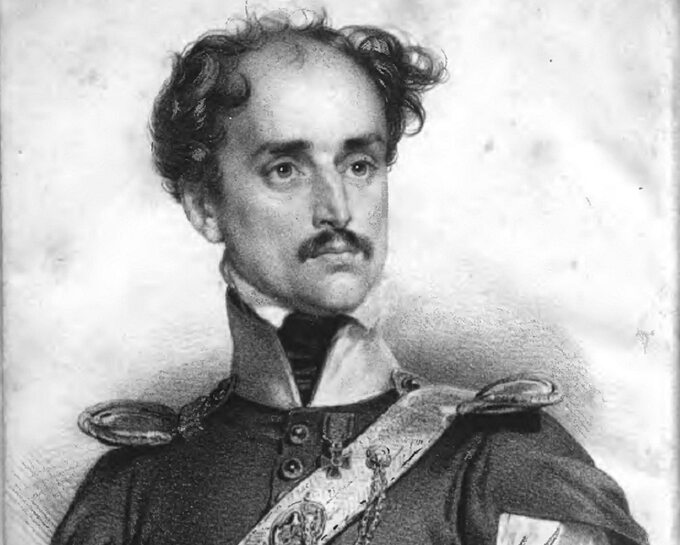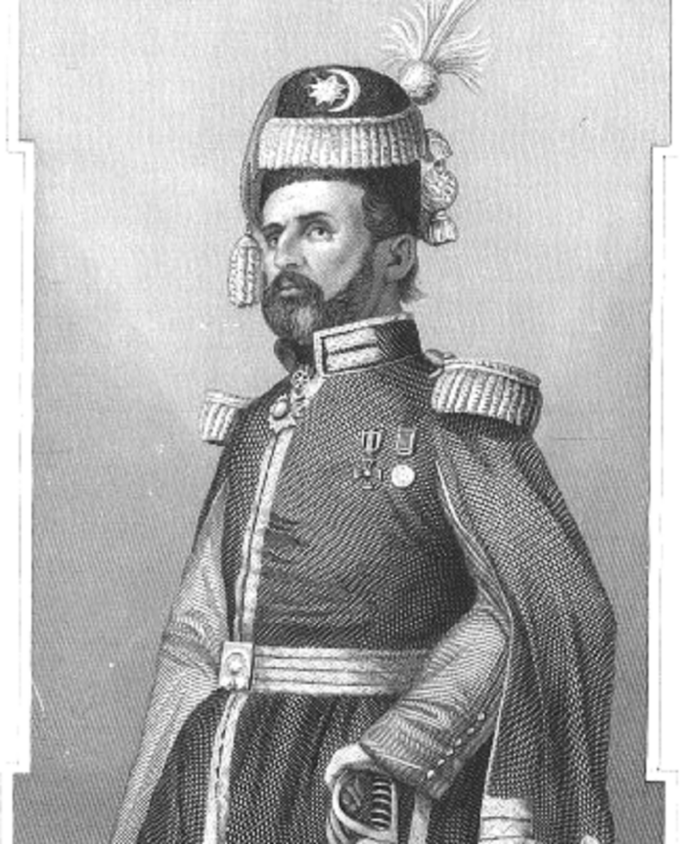Michal Tchaikovsky, also known as Sadik Pasza, collaborated with Adam Jerzy Czartoryski and Adam Mickiewicz. He worked in Turkey and converted to Islam, but still worked for the good of Poland and Poles.
Kozachizna and Hotel Lambert
Michal Tchaikovsky was born on September 29, 1804 in Halčiniek. His father was Stanislav Tchaikovsky, ward of Zhytomyr, and his mother was Petronella née Glenbock. He studied in Berdychów, and then at the Royal University of Warsaw. When the November uprising began, Tchaikovsky immediately joined it. He fought in the unit commanded by his brother, Karol Rozicki. After the fall of the rebellion, Tchaikovsky went to France. There he started his writing career. His works (including “Cossack novels”, “Vernihora”) reflected his fascination with the Cossack lands and the vast Ukrainian steppes.
“(…) Tchaikovsky's novels are completely forgotten today, but they were widely read at the time. And – as Chudzikowska wrote – they were as popular as Sienkiewicz's later trilogy. It was Tchaikovsky, years before Sienkiewicz, who strengthened the heart of Poland. In writing Vernihora, he drew attention to the prophecies of the title character, a Ukrainian bard and lyricist, a mythical figure who prophesied that the Polish-Lithuanian Commonwealth would be reborn and that the impetus for its resurrection would come from Ukrainian lands. It is not surprising that Polish immigrants read Tchaikovsky's novels so willingly. – wrote Tomasz Stanicyk in “Historia DoRzeczy” (5/2019).

Tchaikovsky was associated with the Polish Patriotic Party. He cooperated with the Polish Confederation, and from 1838 with the Lambert Hotel. He befriended Prince Adam Jerzy Czartoryski, who enjoyed great authority among many Poles. Over the years, Czartoryski has been conducting an extensive diplomatic campaign aimed at gaining support for the Polish cause from Western countries and Turkey. When he met Tchaikovsky, Czartoryski decided that he would be a great candidate to represent Poland in Istanbul. Thus, in 1842, Tchaikovsky went to the Ottoman Empire, becoming a kind of “ambassador” of Poland.
in the Ottoman Empire
Turkey was important to the Polish cause because it was also in conflict with Russia. Moreover, Istanbul never recognized the divisions of the Polish-Lithuanian Commonwealth. Tchaikovsky quickly got down to business. He participated in helping Poles who fled to Turkey after the November Uprising and as a result of Russian repression. With the approval of the Turkish authorities, he created a Polish village (30 kilometers from Istanbul) called Adampol. In addition to the Poles, there lived Polish and Circassian captives, who were bought by Tchaikovsky and whom Russia had previously forced into its army.
In Turkey, he met his great love, Ludwika Schniadecka (although he had a wife and children in France), who came there with the desire to find the grave of his former lover.
In 1850, Tchaikovsky converted to Islam as Mehmed Sadik Effendi and entered the Sultan's service. This move was actually necessary if he wanted to develop his career in Turkey and, above all, enjoy the patronage of the Ottoman ruler – otherwise he could be exiled as a Russian “citizen”. Although he would no longer be an official representative of the Hotel Lambert, Tchaikovsky still worked informally. He had many friends at the Sultan's court and constantly tried to get the ruler's interest in the Polish cause.

In 1853, the Crimean War began between Russia and Turkey. Tchaikovsky began to form a Cossack regiment to fight against the Russians. Władysław Zamoyski, the leading figure of the conservative émigré after Prince Adam Czartoryski, had the ambition to form a Polish regiment in the Turkish army. Therefore, he tried to undermine Tchaikovsky's position in the eyes of the Turkish authorities by intrigues and insinuations, claiming that he was not suitable for a commander and that the fighting value of his Cossacks was low. This did not correspond to reality. Tchaikovsky's unit performed well during the war with Turkey, conducting subversive and guerrilla warfare, ensuring, among other things, the unification of Silistria, which was besieged by the Russians. – writes Tomas Stanichik.
In 1855, Adam Mickiewicz arrived in Turkey as another member of the Polish Independence Party, which saw the struggle against the Ottomans and Russia as an opportunity for the Polish cause. He and Tchaikovsky became very close friends. Unfortunately, Mickiewicz died in the same year.
After the end of the Crimean War, Sadik Pasha had less and less faith that the Great War would weaken Russia enough that a chance for the Poles was on the horizon. The collapse of the January uprising sealed these sad forebodings.
Shniadecka died in 1866. Tchaikovsky could not come to terms with her loss for the rest of his life. In 1872, he retired, which was paid by the Sultan. That same year he went to Kiev, where he tried to work on the Polish question, believing that perhaps a good relationship with Tsar Alexander II would give the Poles at least a large degree of autonomy. However, there was no chance.
Michal Tchaikovsky, Sadik Pasha, killed himself with a pistol shot on January 4, 1886, at his estate in Borki, Ukraine. He converted to Christianity before his death.
Also read:
Sadik Pasha, or how Michal Tchaikovsky sacrificed everything for PolandAlso read:
Adam Jerzy Czartoryski. The dream of an independent PolandAlso read:
Nicholas I Romanov. Despotic king of Poland
(Tags translated) Michał Chrzekowski
